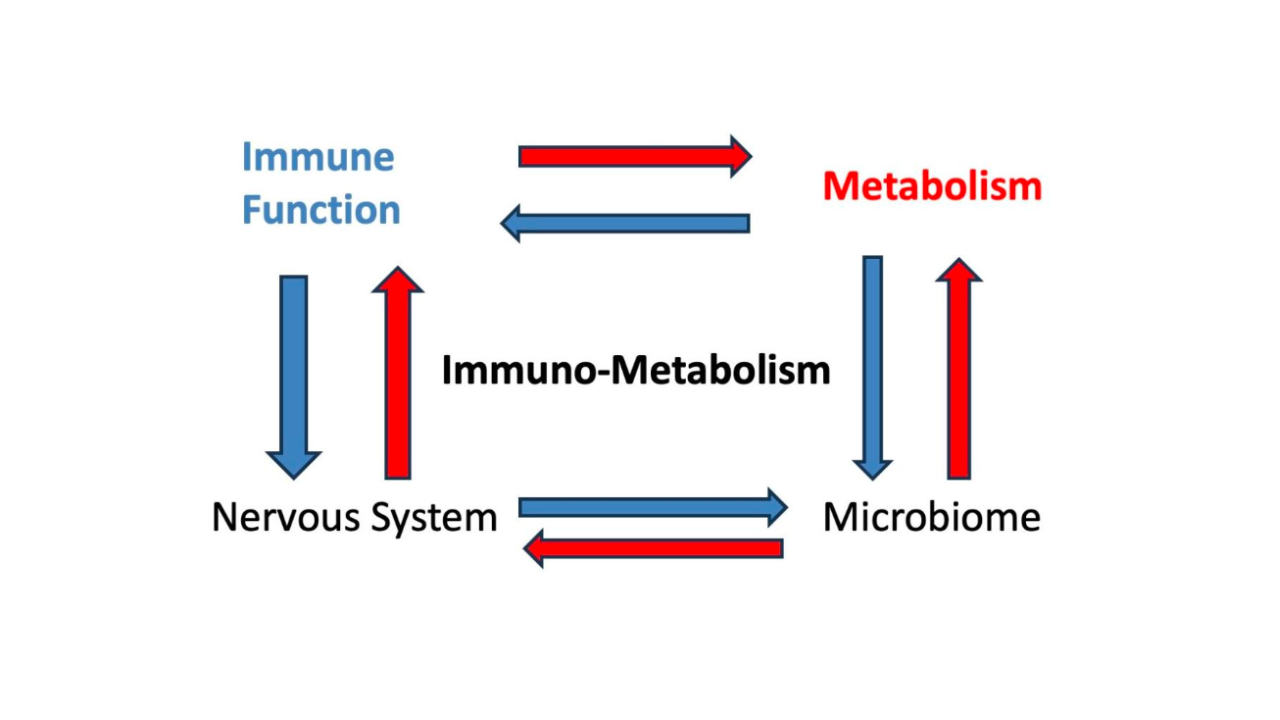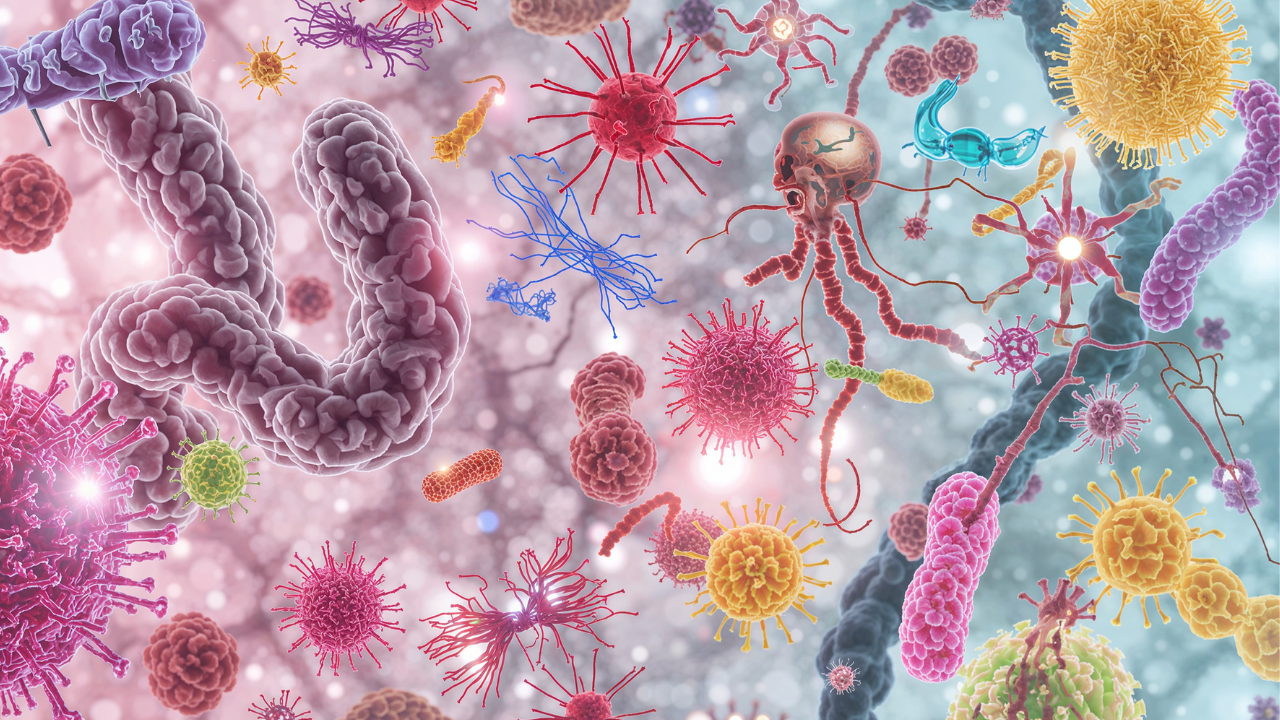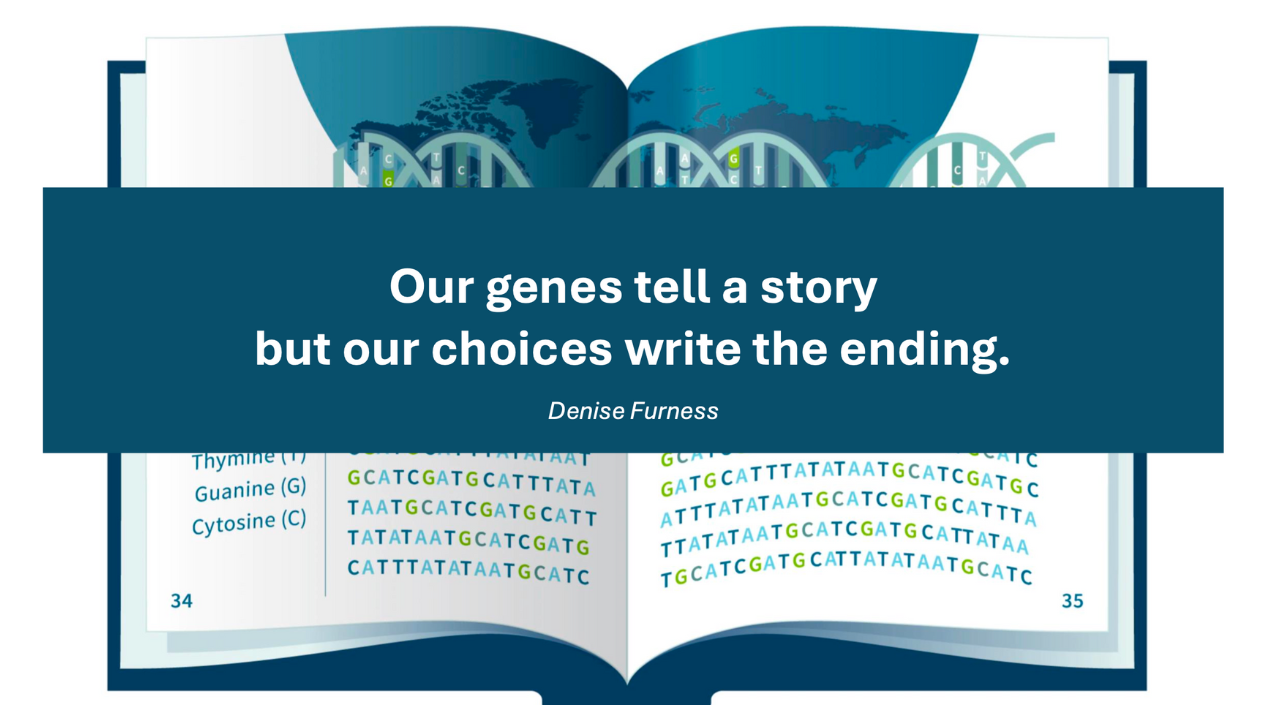Redefining immune health

What is immunometabolism?
It's where your metabolic health meets your immune system—and the connection runs deeper than most people realize.
In fact, it took a global health crisis for many of us to see that connection in action; COVID highlighted just how intricate—and powerful—the immune system truly is. Some people bounced back quickly, while others faced longer, more complicated recoveries.
And yet, one pattern stood out:
Those with metabolic challenges—like obesity, diabetes, or insulin resistance—fared significantly worse than their healthier counterparts【1】【2】.
That wasn’t coincidence.
It was a global wake-up call showing how metabolic health and immune resilience are inseparable.
Welcome to the world of immunometabolism—the science that explains how your metabolism and immune system are in constant conversation, influencing everything from inflammation to recovery to long-term vitality.

Don’t worry—although the immune system is complex, understanding how to nourish and support it doesn’t have to be.
And, excitingly, one of the more recent, empowering, discoveries in modern biology is that we actually have more control over our immune health than we ever imagined.
That’s where the science of epigenetics comes in—a field that shows how our environment and daily choices directly influence the way our genes behave.

Epigenetics are aka the “volume control” on your genes
Think of your genes as a vast library of sheet music—your biological potential.
Epigenetics is the volume control that determines which “songs” get played louder or softer.
Your DNA doesn’t change—but how it’s expressed does, every single day, depending on how you live your life.
Your nutrition, sleep, movement, stress, relationships, and even mindset turn genes on or off, shaping how your cells behave【3】【4】.
That’s why two people with the same genes can age, heal, and perform so differently.
And it’s why the 2025 Nobel Prize in Medicine recognized discoveries showing how epigenetic regulation directs immune cell function—proving your lifestyle continuously “tunes” your immune system【5】.
Why we need to think about daily renewal (not just daily defense):
For decades, we were taught that the immune system was simply our defense team—fighting infections and attacking invaders.
That’s true, but it’s only one part of the story.
We now know that your immune system is also your maintenance and repair crew, quietly working behind the scenes every day to:
-
Repair and regenerate damaged cells and tissues【6】【7】
-
Calm inflammation to prevent collateral damage【8】
-
Monitor for trouble, clearing old or malfunctioning cells【9】
-
Support your microbiome, influencing digestion, nutrient absorption, and mood【10】【11】
-
Help regulate metabolism, especially in fat and liver tissues, helping the body maintain energy balance【12】【13】
-
Teach tolerance, preventing overreactions to harmless foods or environmental triggers【14】
So instead of thinking about “boosting” your immune system (which isn’t even physiologically desirable!), we need to think about nourishing and supporting it—consistently.
A strong immune system isn’t one that’s overactive; it’s one that’s balanced, steady, and responsive—all the time, not just when we’re sick.

The cellular cast of characters (and why they matter)
You can skip this section if you’d prefer—but it’s worth pausing to appreciate how dynamic your immune system really is...it's constantly renewing itself.
A few examples include:【15】【16】
-
Neutrophils: first responders; live 6 hours to a few days.
-
Monocytes: circulate 1–3 days before maturing into cleanup or repair cells.
-
Dendritic cells: live days to weeks, acting as teachers that train T-cells.
-
T-cells & B-cells: some last weeks, others a lifetime.
-
Natural Killer cells: patrol for about two weeks.
The key takeaway:
Your immune system is in constant motion—renewing, replacing, and adapting to the information you give it through your daily habits.
 Immunometabolism: when immunity and energy regulation intersect
Immunometabolism: when immunity and energy regulation intersect
Every immune cell runs on energy. The way it produces and uses that energy affects how it behaves【17】【18】.
When metabolism is balanced, immune cells can shift easily between “defense mode” and “repair mode.”
But when metabolic function becomes disrupted—through blood sugar imbalance, stress, or chronic inflammation—immune activity can become dysregulated too【19】【20】.
This is exactly what we witnessed during COVID: metabolic dysfunction amplified immune dysfunction.
Those with insulin resistance, obesity, or fatty liver disease entered infection already in a state of “meta-inflammation”—a chronic, low-grade inflammatory state driven by metabolic imbalance【1】【2】【21】.
So when the immune system needed to mount a defense, it often overreacted—producing more inflammation than protection.
In other words: metabolic health sets the stage for immune health.
This is immunometabolism—the ongoing conversation between your immune and metabolic systems. When one is out of tune, the other always feels it.
Bottom line
If the pandemic taught us anything, it’s that immune health and metabolic health are inseparable.
Your immune system isn’t something to “boost” when you’re sick—it’s something to nourish and support every single day.
Every bite, breath, and thought sends information that shapes how your immune system performs.
When your metabolism and immunity are in sync, inflammation subsides, energy improves, and repair happens more efficiently.
This is what Dr. Jeffrey Bland, the founding father of functional medicine, calls “the new biology of aging”—a way of thinking that shifts us from disease management to vitality creation.
It’s about recognizing that your body isn’t static. It’s responsive, adaptive, and designed for renewal—if you give it what it needs.
That’s immunometabolism in action: your daily choices shaping how well, and how long, you live.
TL;DR: Immunometabolism & resilience
-
Epigenetics are like the volume control on your genes—your lifestyle tunes it daily.
-
Immune cells play key roles in metabolic regulation, especially in fat and liver tissues.
-
COVID highlighted how metabolic health directly affects immune outcomes.
-
Don’t “boost” your immune system—support and nourish it daily.
-
As Dr. Bland teaches, the new biology of aging is about function, not fear—and it starts with food, movement, and mindset.
Ready to strengthen your foundation?
In my 90-Day Proactive Heart Health Program, we translate the science of immunometabolism and epigenetics into clear, practical steps to:
✔️ Reduce inflammation and metabolic dysfunction
✔️ Restore energy and vitality
✔️ Support long-term resilience through personalized nutrition and lifestyle
👉 Book your complimentary Proactive Heart Health Session
Let’s uncover how your immune system—and your daily choices—can help you feel better for life.
References
-
Drucker, D. J. (2021). Diabetes, obesity, metabolism, and SARS-CoV-2 infection: The end of the beginning. Cell Metabolism, 33(3), 479–498.
-
Stefan, N., Birkenfeld, A. L., Schulze, M. B., & Ludwig, D. S. (2021). Obesity and impaired metabolic health in patients with COVID-19. Nature Reviews Endocrinology, 17(3), 135–136.
-
Horvath, S., & Raj, K. (2018). DNA methylation-based biomarkers and the epigenetic clock theory of aging. Nature Reviews Genetics, 19(6), 371–384.
-
Cavalli, G., & Heard, E. (2019). Advances in epigenetics link genetics to the environment and disease. Nature, 571(7766), 489–499.
-
Nobel Assembly at the Karolinska Institute. (2025). Nobel Prize in Physiology or Medicine: Epigenetic Regulation and Immunity.
-
Wynn, T. A., & Vannella, K. M. (2016). Macrophages in tissue repair, regeneration, and fibrosis. Immunity, 44(3), 450–462.
-
Doran, A. C., Yurdagul Jr, A., & Tabas, I. (2020). Efferocytosis in health and disease. Nature Reviews Immunology, 20(4), 254–267.
-
Vignali, D. A. A., Collison, L. W., & Workman, C. J. (2023). How regulatory T cells work. Nature Reviews Immunology, 23(4), 248–263.
-
Medzhitov, R. (2021). Inflammation: A physiological response to injury and infection. Cell, 184(6), 1489–1501.
-
Belkaid, Y., & Hand, T. W. (2019). Role of the microbiota in immunity and inflammation. Cell, 177(5), 1083–1098.
-
Rooks, M. G., & Garrett, W. S. (2016). Gut microbiota, metabolites, and host immunity. Nature Reviews Immunology, 16(6), 341–352.
-
Hotamisligil, G. S. (2017). Inflammation, metaflammation, and immunometabolic disorders. Nature, 542(7640), 177–185.
-
Bapat, S. P., et al. (2022). Deconstructing immune metabolism: Metabolic regulation of immune responses in obesity. Nature Reviews Immunology, 22(4), 235–250.
-
Akdis, C. A. (2022). The cellular basis of immune tolerance. Immunity, 55(5), 781–796.
-
Shaw, A. C., Goldstein, D. R., & Montgomery, R. R. (2019). Age-dependent dysregulation of innate immunity. Nature Reviews Immunology, 19(12), 711–723.
-
Goronzy, J. J., & Weyand, C. M. (2019). Mechanisms underlying T cell ageing. Nature Reviews Immunology, 19(9), 573–583.
-
O’Neill, L. A. J., & Artyomov, M. N. (2019). Itaconate: the poster child of metabolic reprogramming in macrophage function. Nature Reviews Immunology, 19(5), 273–281.
-
Pearce, E. L., & Pavlova, N. N. (2022). Metabolic pathways in immune cell activation. Cell Metabolism, 34(3), 361–377.
-
Donath, M. Y., & Dinarello, C. A. (2019). Immunometabolic diabetes. Immunity, 50(6), 1207–1222.
-
Wensveen, F. M., et al. (2015). The “Big Bang” in obese fat: Events initiating obesity-induced adipose tissue inflammation. European Journal of Immunology, 45(9), 2446–2456.
-
Fernández-Ruiz, I. (2021). Metabolic inflammation in COVID-19: Fueling the fire. Nature Reviews Endocrinology, 17(7), 387.




